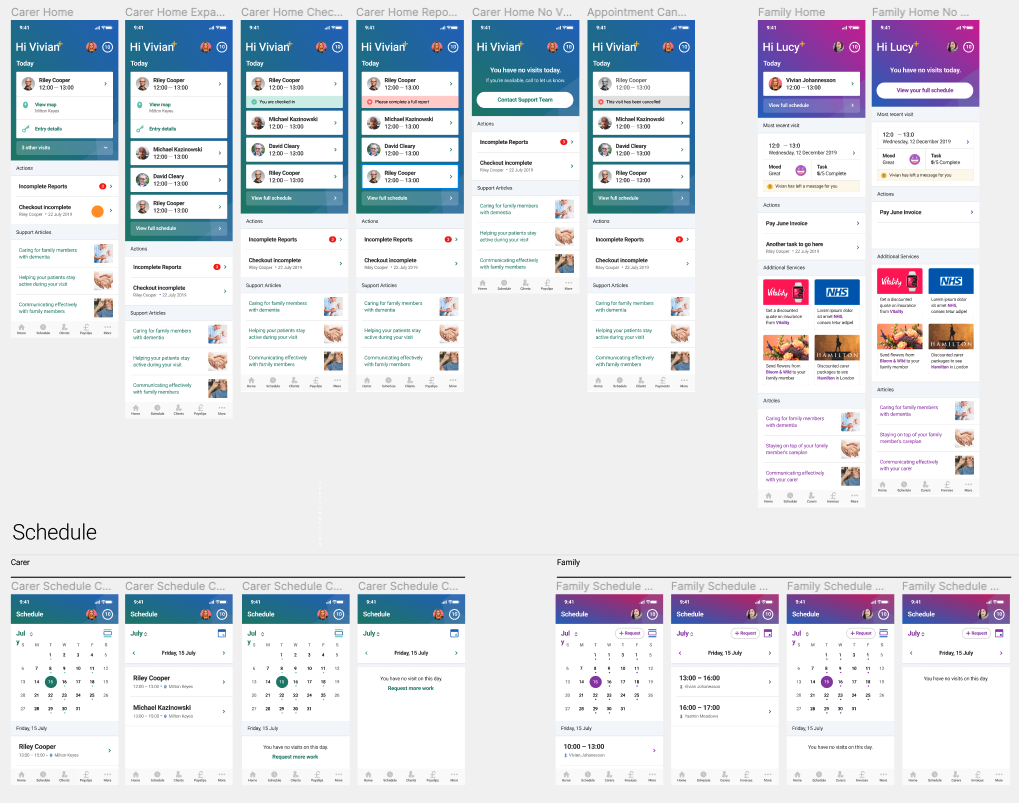Context
Sector: Healthcare, Nursing, Telehealth
Cera Care is a digital-first healthcare-at-home company delivering care, nursing, telehealth and repeat prescription services in people’s homes via technology. Founded in 2015, the company provides elderly and vulnerable communities with care in their own homes, and allows families to arrange the care.
The company, being very new, still has many manual processes, paper training, and in-person training. During the pandemic, it became a great challenge to train all caregivers, many of whom do not have in-depth knowledge of technology.

The challenge
With the worsening of Covid cases, and more severe measures during lockdown, it became imperative to create a new way of training and onboarding caregivers in a 100% digital way, without losing the touch of humanity and care.
Design Question
“How can we onboard caregivers in the most humanised and simple way possible?”
Research Findings
The biggest outcomes collected from this study were:
– 67% Users felt that all printed onboarding was somewhat difficult to understand.
– 71% of users said that the training was very technical and not very humanised.
– 40% of users stated that they felt alone and isolated.
Humanising the experience
After all the research with users, we not only found caregivers struggling with training, but also dissatisfaction with the lack of humanisation in the onboarding process, which is why we decided to personalize the experience, and give training and onboarding a more human face.
Given the challenging times of the pandemic, which required personal distance
I feel like we workers on the front lines are alone all the time, sometimes what we just need is someone to talk to.
Interviewee
It was clear what kind of experience and support employees needed.
Meet Martha, Cera Assistant
- To communicate in a more humane way, it is important to give a more intimate communication tone and assign a character so that the user knows that they are not just receiving messages from a system, but that there are people behind the product they are using. This way it is important in a playful way to communicate our messages to the users in an empathetic and personalised way, so assign the message to CeraCare Assistant, a personalisation of our way of interacting with our users.

Whenever we need to emphasise an important message for the user, communicate notifications that can have a high impact and reinforce positive actions for the user, we will deliver the message in a more positive way

Positive feedback
After the launch the results were very positive, saving hours in training, and saving many hours in calls with managers, we had very positive feedback from newcomers
Transformation in the company
With the creation of the personal assistant, the company’s vision also changed, also transforming it into another idea that eventually became a Bot with artificial intelligence, becoming the personification of the company
The success of creating the virtual assistant, which eventually became a bot, even reached the media:
https://www.wired.com/story/startup-cera-launches-ai-for-social-care/
https://growthbusiness.co.uk/meet-martha-uks-first-elder-care-bot-16143/





